- Home
- Michelle E Lowe
Atlantic Pyramid
Atlantic Pyramid Read online
ATLANTIC PYRAMID
BY
MICHELLE LOWE
Copyright
Atlantic Pyramid Copyright © Michelle E. Lowe 2013
This is a work of creative fiction. Names, characters, places, events and incidents are either the products of the author’s imagination or used in a fictitious manner. Any resemblance to real persons, living, dead or immortal is purely coincidental.
Michelle E. Lowe asserts her moral right to be identified as the author of this book.
All rights reserved. This book, or any portion thereof may not be reproduced or used in any manner whatsoever without the express written permission of the author, except for the use of brief quotations in a book review.
Any copyrighted material is reproduced under the fair use doctrine.
Cover design by C&S Designs
DEDICATION
To my brother, Jimmy.
Although the birds still sing and the leaves still change with the seasons, none sound so sweet or look as bright since you’ve been gone.
ACKNOWLEDGMENTS
I would like to thank those who have helped make this book possible. First, I’d like to thank my parents, Jim and Janice. To my daughters, Mia and Kirsten, who encourage me to keep telling stories. And to my Aunt JoAnn for always being there.
I want to thank Kate Hallman for her assistance and advice. Thanks to Scott and Colleen Carroll for their generous support. And to the Wolf Pirate Project for their services to inspire writers. Mostly, I would like to give special thanks to May Bestall, who stood by this story for the past year, molding it into the novel it is today. Thanks to programs like The Wolf Pirate Project and people like May Bestall, authors like me have learned so much and have reached new heights.
Chapter One
My name is Heath Sharp. On June thirteenth, I discovered a world within our own and it terrified me.
The horizon glowed white between the ocean and sky. No clouds hovered and there were no strong winds. Gavin Cole was one of my favorite students and not because he was a whiz kid. I’d trained him every Tuesday for the past few months and he’d finally broken out of his shell to fly a few times on his own. I didn’t mind his apprehension; patience was just part of being a mentor.
“All right, take the yoke.”
“Uh, what’s the yoke again?” Gavin asked. He was also a smartass.
I gave him a sideways glance and he shot me a wide grin in return, wrapping his hands around the controls. “Dude, kidding. Just kidding.”
“Now, remember, it’s not like driving a car,” I said, letting go of my wheel. “You don’t steer with the yoke. You use the pedals.”
“Got it, dude. Yoke pitches and banks; pedals steer the plane.”
One of the problems people have when learning to fly is forgetting their driving habits. It’s a challenge to help them through the transition from operating a car to flying an aircraft, but I love it.
“Dude, we’re at ninety-five knots. Is that too fast?”
I read the LCD screen. The speedometer wavered between ninety-four and ninety-five knots. “No, we’re good. Just keep her steady. As for now, the sky is ours.”
“I like that.”
I have to admit, I did too. Flying gave my students the feeling of being free from the world, where they could leave all their bad memories in the clouds. That was the sensation I’d gotten as a young boy the first time I’d taken to the sky in my grandmother’s airplane. I remember the rumble of the runway sliding beneath us before it suddenly became smaller as the plane lifted off the ground. The sky had then opened into a never-ending blue sheet above our heads.
“If you reach high enough, you can touch the stars,” Grandmother would say.
She’d taught me how to fly. In gratitude, I’d promised if I ever owned a plane, I’d name it after her—and I had. I’d named my Cessna Skyhawk Gypsy Girl.
“Man, I like these screens you got in here,” Gavin said, tapping the LCD displays. “Can we get HBO on ’em?”
“You think it’s funny acting dumb?”
“Yep, it passes the time.” When I grinned, he added, “What’s this called again?”
I looked over at him. His thin lips were as straight as a paper’s edge. “Nah, really, I’m not acting dumb this time. Honest.”
With a deep sigh, I turned back to the horizon. “It’s a G1000. What we’re sitting in is called a glass cockpit.”
“I bet it’s easy to teach people how to fly in one of these, huh?”
“You’d think,” I grumbled.
“The sight of all these gadgets in an old instrument panel would downright terrify me. I always liked change. Change is a good thing—change in the weather, clothes styles, lovers. Anyway, I do know what kind of cockpit we’re in. I’m not a complete dumbass. I just suck at remembering numbers. Just about anything with numbers makes me as empty-headed as a senile person in a guessing game.”
“You did well on the written test. Few people get the part about the altimeter on the first try.”
“I hated that section,” he bemoaned. “If the small hand is just over the one, how many feet are you? If you’re cruising at nine thousand feet MSL, how many feet is that in AGL?”
“And the answer is?”
He bit his bottom lip.
“Damn it, if you’ve forgotten the answers already, I’m gonna throw your ass out of this plane.”
He went from biting his lip to drumming on his front teeth. “Er . . . eighty-two hundred feet?”
“And what does MSL stand for?”
“Mean Sea Level.”
“And?”
“And if the small hand is over the one, you’re at a thousand feet.”
“Good job.”
“Whew, I’m glad I didn’t complain about every test question or this would be one hell of a scary flight. Dude, maybe that’s how you instructors should do the tests. Know what I’m sayin’? Bet you’d get a lot more people studying their asses off the night before if they knew they’d get thrown out of a soaring airplane for missing a question.”
“Bet you’re right.”
He pressed on the right pedal to bank the plane in the other direction. “I have a cousin livin’ in Weed, California. Maybe I’ll visit him. While I’m there, I’ll check out that reservation your dad lives on.”
“Weed is a bit far from Whitethorn,”
“What tribe are you again? Wichita?”
“Wailaki. My father is full-blooded but my mother is white.”
“That would explain those pretty green eyes of yours.” He laughed. “Don’t worry, dude, I’m not hittin’ on ya.”
I shook my head. “You’re stupid.”
“That’s pretty cool, though. Not many people can say they have Wailaki blood in ’em. Most people say they’re Cherokee. It’s funny, ’cause they claim their great-great-great-grandmother was a Cherokee princess. Not only would there have to have been a lot of Cherokee princesses back then, but there would also have to be such a thing as a Cherokee princess. What’s the reason for people thinking that, anyway?”
“The Trail of Tears,” I said, surprised that Gavin even knew the Cherokee princess claims were bullshit. I’d heard people—mostly from white women—say the same thing about their great-great-great-grandmother when I mentioned my Native American heritage. Whenever some bright blonde number told me that, I felt compelled to help piece together her family tree and teach her something about believing everything she’d been told.
“Everything’s lookin’ good,” Gavin said, turning on the XM radio. “Looks like blue skies from here on out.”
As he turned up the volume, Don McLean’s song American Pie came on.
“Eerie,” I murmured.
“What, the so
ng?”
“Yeah. Don’t you know why McLean wrote it?”
He was quiet for a moment. “Oh, yeah. ’Cause of that band that died in a plane crash. Think it’s a bad omen? Should we turn around?”
“It’s just a coincidence. Don’t worry about it.” I leaned back in the leather seat and checked the instruments. “Fuel gauge looks good, knot speed same, and the plane is level with the horizon. You’re doing great.”
I stared off into the big blue sky. Not a puff of white anywhere, just a clear view of light blue on the dark.
* * *
“Mayday! Mayday!” I yelled into the radio. “This is Cessna 2B-Golf, requesting assistance! We’ve run into a squall!”
The plane shook violently in the winds. The windshield wipers couldn’t push away the sheets of rain fast enough. I looked over at the map on the display screen. “Our coordinates are—”
I stopped myself when I noticed our location. The map had to be wrong. “Wait, how did we fly twenty miles past Nassau?”
Both screens turned to snow as a constant beeping came from the stall warning indicator.
“Shit!” I yelled as static came over the radio. “Steve, are you there? Mayday!” I waited for a response but got none. “We’ve lost communications!”
“We’re stalling,” Gavin shouted, pointing to a red light. “Oh, my God, we’re gonna crash!”
“Shut up!” I barked. “I’ll get us out of this.”
I gripped the control stick and pulled back, lifting the nose while using full throttle to build up speed.
“What’s wrong with the screens?” he asked. “Oh God, what’s happening with the instruments?”
I did my best to steady the jerking plane. The entire backup system went haywire. The compass, speedometer, airspeed indicator, and altimeter spun wildly. All around us, the sky had turned nearly pitch black, while the rain pounded so hard it was as if we were flying through a waterfall.
I couldn’t understand it. One second, we were flying through crisp open skies with Miami at our backs, the next, I was fighting to get out of a storm that had literally dropped down on us. I couldn’t see anything. I didn’t know how high we were or if the plane was even level. All the instruments either beeped or flashed. Both dials on the altimeter went in different directions and the compass spun so fast I couldn’t make out the letters.
“Get us outta here, dude!” Gavin shouted, clutching anything he could as another gust pounded the plane.
I white-knuckled the wheel and stomped on the left pedal, trying to turn the plane and head back the way we’d come. My body pressed against the door as the aircraft made a sharp change in direction. It was dangerous going against the wind, like a surfer going against a big wave. The storm was like a playground bully and the plane a geeky kid taking one pulverizing blow after another. I couldn’t tell which direction the wind came from. It seemed to come from everywhere at once, giving me no sense of whether I had done the right thing or not.
I gritted my teeth as the wheel violently shook in my sweat-drenched hands. When the plane turned, a rush of calm washed over me. If I could overcome the wind and circle around, there was a chance we might pull out of the storm.
Then the engine died. Darkness shadowed the inside of the cockpit as both screens went blank. The control panel lights shut off. The buzzing of the propellers went silent when the blades stopped.
“Jesus!” Gavin cried. “What happened?”
“We just lost power.”
I tried the magnetos to jolt power into the engine, while working to crank the throttle, but the propellers wouldn’t turn. The plane was dead. My stomach slid into my throat as the nose cone dipped.
“We’re losing altitude,” I said, trying anything to regain power.
“Fuck! We’re gonna crash!”
I wanted to reassure him that I was going to get us safely out of this, but I said nothing. He was right. We were crashing.
A gust of wind suddenly flew under the right wing, spinning us as we plummeted. Even when I shut my eyes, I couldn’t escape the feeling that I was riding the Sizzler at a carnival. Pressure pushed against both sides of my head. Gavin screamed so loud I didn’t know if he heard me yell, “Hang on!”
I gripped the wheel so tight my fingernails dug into the handles. I could see nothing outside as we tumbled through blackness. Soon everything went dark.
When I regained consciousness, everything around me was quiet. I was surrounded by dim, blurry objects. The pounding in my skull answered the question of whether I was alive or dead. With a groan, I slowly raised my head. The safety harness still held me in my seat. My dark bangs draped my eyes and I brushed them back with a shaky hand. When I did, my palm came away soaked in sweat.
That wasn’t the only part of me that was wet. My feet were submerged in water. My eyes suffered from a hazy cloud shrouding me but my nose told me it was seawater. My first presumption was that the plane had somehow miraculously stayed afloat. I took off my sunglasses and looked at the bent frames until my vision began to clear.
“Gavin,” I said weakly, “we have to get out of here before the plane sinks.”
Gavin’s head lay on the control wheel, facing me. His safety harness had broken and his face had slammed into the aluminum wheel. I tugged on his shirt sleeve. “Gavin, wake up, man. We have to go.”
He didn’t stir. I slipped his sunglasses off and saw he was dead. His brown eyes were wide and unblinking. Thick streams of blood slid down his face and dripped from his chin. To be on the safe side, I checked for a pulse but found none. There was even a strong stench of urine. I didn’t judge him for it. I had only been seconds away from doing the same.
I looked at the control panel. Both displays were blank and one was cracked. I tried the radio and called for assistance, but there was nothing. Gypsy Girl was as dead as the woman she was named after.
I pulled out my cell phone but it had no power. I searched through Gavin’s pocket and found his, but it was dead as well.
Outside was a gray fog. The rain had stopped, but there was a strange lingering mist in the wake of the storm.
I needed to deploy the life raft before the plane sank. Unbuckling my safety harness, I eased into the back area of the plane, happy it didn’t sink any deeper. Maybe we’d landed on a coral reef. If that was the case, perhaps the plane would stay put long enough for me to reach shore. I could then send someone to load the plane onto a ship and tow it back to Miami.
I was ashamed to find myself thinking more about my aircraft than about Gavin. I wasn’t an insensitive or materialistic person, but a dead plane seemed more real to me than a dead man. In a way, thinking about the plane’s future allowed me to focus on my own. I didn’t have time to mourn Gavin. It would make me weak and weakness might do me in.
I found the life raft floating like an orange block in the back. In a wall compartment were two flare guns in a tin box. Since it was so dark and would only get darker, I grabbed a flashlight before strapping on a life vest and making my way back to the front.
Gavin remained motionless against the control wheel, his eyes staring blankly forward. I glanced at him for a moment as I squeezed between the seats and sat down. Then I checked the side window. The water reached only to the lower portion of the door.
I saw a dark, shadowy shape through the glass. It was a solid object close to the plane but I couldn’t make it out. I grabbed the door handle. Although I wasn’t sure why, I looked back at Gavin and said, “I’ll be back in a sec.”
I wasn’t worried about water rushing into the plane and taking it under, but the thought did cross my mind. The mysterious surface the plane sat on couldn’t be more than five feet underwater. Even so, I held my breath as I pushed the door open. It proved to be a bit of a challenge, since the hinges were broken and the water was like syrup. But I used all my strength to push it just enough to squeeze through. Then I threw caution to the wind and leapt out, sinking only waist-deep in water.
The ground
was bumpy and hard. What I stood on wasn’t coral, it was muddy rock. I was surprised it hadn’t torn the plane apart upon impact.
I was glad the ocean temperature near Miami was comfortable. However, the fact that I wasn’t able to distinguish anything that might be lurking beneath the surface made me edgy.
I set aside my apprehension and made my way to the nose of the plane to assess the damage. My chest felt tight every time I breathed, as if my lungs had collapsed. I was a bit light-headed from the thick smell of gas. I noticed a sheen of it coating the surface. I thought it came from my plane, until I saw what I’d seen through the windshield of the cockpit—the wing of another aircraft. Its end was underwater but I could still see a white star inside a blue circle with red-and-white stripes painted on the side of its body. A World War II insignia.
“What the hell?” I muttered.
To keep my flare gun and flashlight dry, I placed everything back on the seat of my plane, then climbed the wing of the World War II aircraft. The fog wet my face like sea spray.
Judging by the wing’s length, I estimated the plane’s wingspan to be at least a hundred and eighteen feet. The wing was tilted enough to give my New Balance sneakers a challenge with traction. It wasn’t long before I came across the propellers and a canopy. I stared at it, trying to catch my breath. The air didn’t help but the fog started to thin, like a theater crowd at the end of a show.
I’m a history buff at heart. If I’d gone to college, I would’ve taken history as my major. One of favorite subjects I took an interest in was planes and ships. I suppose it came from my love for flying. So when I saw the WWII aircraft, I knew exactly what I was looking at.
A much larger Navy symbol was visible on the side of the plane under its canopy. It was a PBM Martin Mariners patrol aircraft. In War World II, battles had raged in the Pacific months after the war had ended in Europe. Planes such as this one had been used by the Navy for long overseas flights. They were nicknamed flying gas tanks because they carried so much fuel. This plane’s tank must have cracked and the gas had spread like glossy butter on the water.

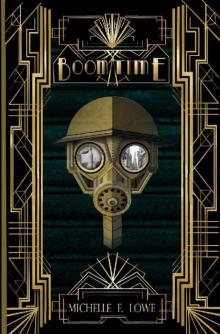 Boom Time
Boom Time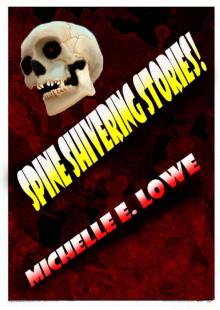 Spine Shivering Stories!
Spine Shivering Stories!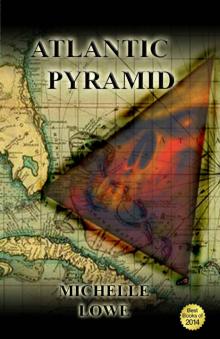 Atlantic Pyramid
Atlantic Pyramid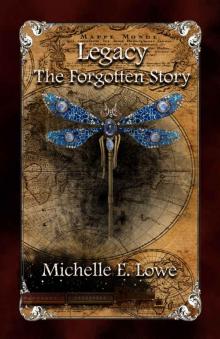 The Forgotten Story
The Forgotten Story The Underground
The Underground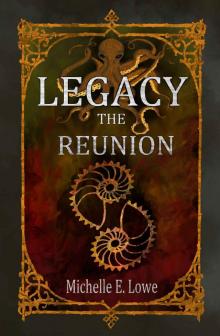 The Reunion
The Reunion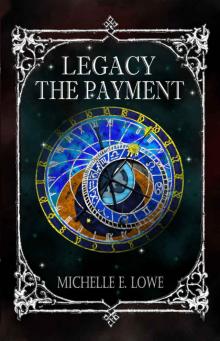 The Payment
The Payment The Warning
The Warning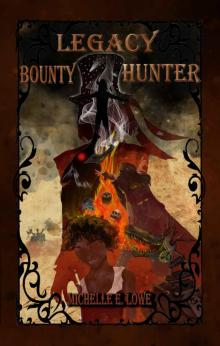 Bounty Hunter
Bounty Hunter